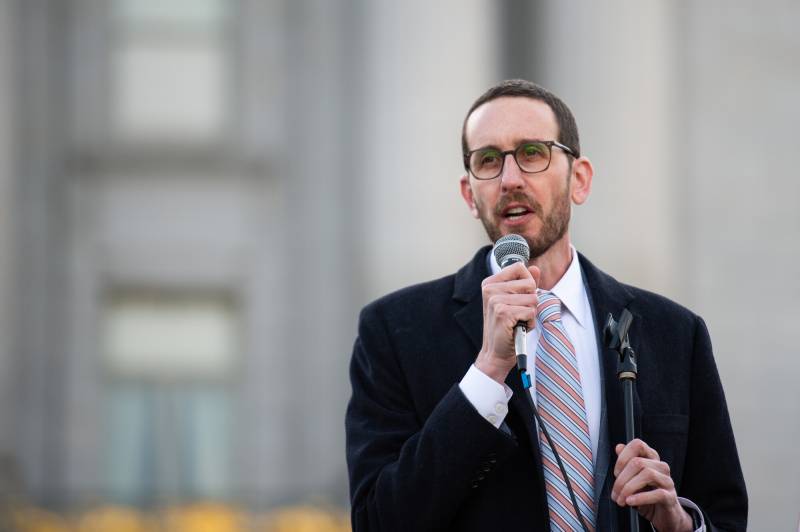Under SB 423, which passed last year, cities that miss their state goals on planning for new housing must provide an expedited path for approving permits for new developments that meet existing planning standards.
San Francisco will be the first city where the law is triggered after Wiener includes language, making it the only city with an annual review of its housing permitting goals. Other cities are reviewed every four years.
On Friday, the California Department of Housing and Community Development ruled that San Francisco was falling short of its goal to plan for building 82,000 new units of housing by 2031. Last year, the city authorized just over 3,000 units, according to the San Francisco Planning Department.
Rich Hillis, director of the Planning Department, called the streamlined process instituted by SB 423 “a new era.”
“You could come in today online and apply for a housing project that will be approved by the end of this summer,” Hillis said at a press conference on Monday. “And that is truly a game changer, where that would have normally taken a year, two years — or, as Mayor Breed pointed out, sometimes 10 years or more if CEQA is involved and appeals are involved.”
Critics say the penalties instituted by SB 423 were always part of a plan to do away with local control in favor of market-rate developers.
Lori Brooke, co-founder of anti-upzoning group Neighborhoods United SF, called the state’s goal of 82,000 new units for San Francisco “unattainable” and said the city was unfairly singled out by SB 423, which she said “forces the city to haphazardly make changes to zoning and planning that will be felt for the next 100 years.”
“San Francisco is being punished for actions beyond its control — cities don’t build housing; developers do,” Brooke said in a statement.
KQED’s Sara Hossaini contributed to this report.

